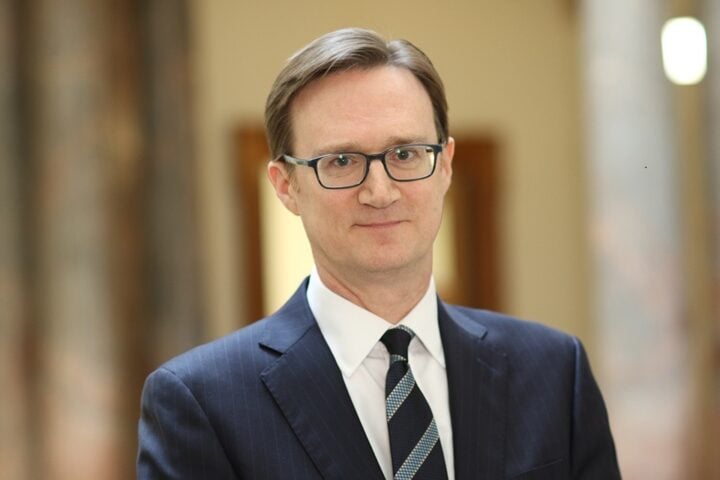Richard Montgomery, British high commissioner to Nigeria, says the UK’s new policy that restricts visas for families of foreign students is not targeted at Nigerians.
Speaking with NAN on Sunday, Montgomery said the policy is aimed at managing the pressure on social services in the UK.
He urged Nigerians to see the new visa regime in a bigger context, saying it is “really a positive for Nigeria and the United Kingdom”.
“Three years ago, there were 20,000 Nigerian students in British higher education institutions, and last year, the number increased to 127,000,” Montgomery said.
Advertisement
“So, we had a five-fold increase in the number of students from Nigeria coming to UK universities.
“We are delighted that UK universities continue to attract the best and brightest from Nigeria.
“And in the wider context, last year, the UK granted three million new UK visas of various types including students and other visitors.”
Advertisement
He said more than ten percent of the three million visas issued by the UK last year went to Nigerian students.
“Nigerians alone received 325,000 of those 3 million visas,” he said.
“So more than 10 percent of the visas from the UK are to Nigerian citizens which is fantastic.
“It goes back to the fact that the UK and Nigeria have strong people-to-people links.
Advertisement
“The policy change is about people who are doing non-research degrees coming to the UK as undergraduates, or for a one-year master’s degree programme, and who decide to bring their dependents.”
‘RISE IN IMMIGRANTS CAUSING A STRAIN’
He said the UK has seen a significant rise in the number of people coming into the country from all over the world, which he said has led to a strain on the country’s amenities.
“We have had a very significant rise in the number of people coming from all around the world, not just from Nigeria,” Montgomery said.
Advertisement
“This has caused some strain on the UK.
“Sometimes it is difficult to find good accommodation as a student and there is real pressure on housing and social services for students.
Advertisement
“If you looked at it three years ago, only 1,500 dependents of students were coming to the UK from Nigeria, but it was 52,000 last year.
“I am just trying to put it in proper context, that this is an adjustment.
Advertisement
“The words that are being used in the media to describe the situation are misrepresenting. We are making an adjustment that enables us to manage the demands on services in university towns and elsewhere.
“Nigerians are very successful in acquiring visas. We have a 97 percent approval rate and so that is the big context,” Montgomery said.
Advertisement
He said the country’s higher institutions are very open to students coming to study in the UK.
He expressed the belief that Nigerians stand to gain massively from the international exposure and international networks offered by studying in the UK.
In May, the UK home office announced that from January 2024, foreign students will no longer be allowed to take their dependents along with them to the country.
The ban affects all master’s students and some other post-graduates, but will not apply to PhD students who are highly skilled and whose courses last between three to five years.
NIGERIANS AMONG HARDEST HIT
If implemented, the crackdown will affect many Nigerian students hoping to pursue their postgraduate studies in the UK, as Nigerians accounted for the highest number of dependents accompanying persons with study visas in 2022.
Nigerian nationals also accounted for the largest increase in sponsored study grants compared with 2019, rising by 57,545 (+686%) to a record high of 65,929, making them the third largest nationality group.
Add a comment






